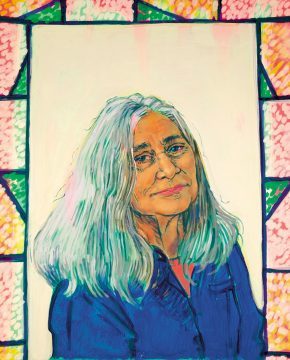
Hermione Lee in the New York Review of Books:
John Ames, the old preacher who has lived in the small town of Gilead, Iowa, all his life, where he is the Congregationalist minister, tells the story of Gilead, the first of a series of interconnected novels that Marilynne Robinson has been publishing since 2004. Toward the end of that meditative, troubled, searching book, the dying minister says that other peoples’ souls are, in the end, a mystery to him. Try as we might, “in every important way we are such secrets from each other…there is a separate language in each of us.” Each human being, he thinks, “is a little civilization built on the ruins of any number of preceding civilizations.” We have “resemblances,” which enable us to live together and socialize. “But all that really just allows us to coexist with the inviolable, untraversable, and utterly vast spaces between us.”
The passage is at the heart of these four books, Gilead, Home, Lila, and now Jack. (The much earlier Housekeeping, published in 1980, stands edge-on to the Gilead novels. It is set in a different part of America, with different characters and a different tone, and, unlike the later books, is entirely about women’s lives. But it shares their preoccupation with loneliness, outcasts, poverty, and the possibility of finding again what has been lost.) Ames’s ruminations on the soul are prolix, philosophical, and profoundly sad. And Robinson’s work, which takes its inspiration as much from Virgil and classical tragedy as it does from American Protestant literature, is heavy with lacrimae rerum, the “great sadness that pervades human life.”
More here.
